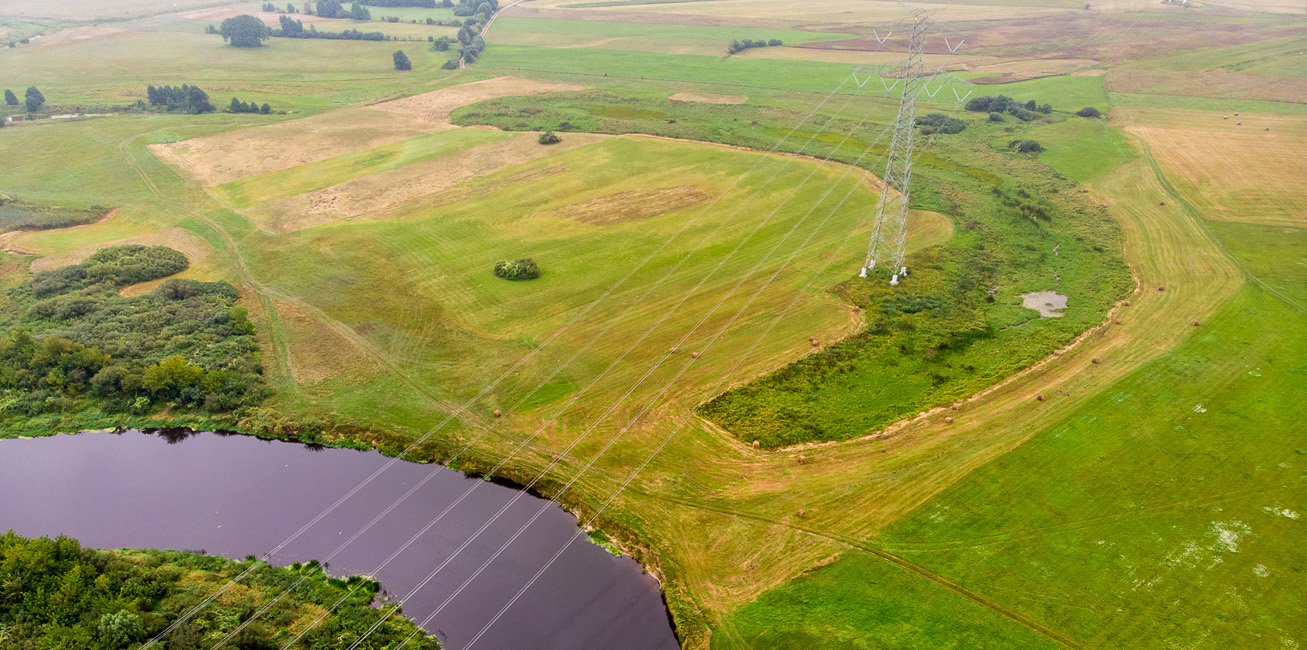With regard to the most significant environmental aspects identified, our company has internally defined rules of conduct and supervision to ensure meeting of all legal requirements and sustainable use of natural resources – as far as possible.
- Electromagnetic field emissions
We carry out a number of activities that are conducive to achieving our objectives:
– meeting the legally required permissible levels of electromagnetic fields in the environment outside the right-of-way of the line,
– selection of locations for new investment projects allowing to limit construction of power facilities in residential areas,
– maintaining the efficiency of systems and equipment,
– modern technological solutions of equipment and systems.
We perform tasks affecting the compliance with permissible levels of noise in the environment required by law, such as:
– selection of network infrastructure locations to limit the construction of power facilities in residential areas,
– quality inspections of the works performed,
– maintaining efficient systems and equipment.
Waste generation has been classified at PSE as a significant aspect. The rules for dealing with waste generated from operations at network facilities, the head office and field units are regulated in PSE S.A. Waste Management Manual. Employees are informed of updates and changes to the document resulting from adaptation to applicable provisions of law.
To enable selective waste collection, the company's head office building, branch offices and substations have been equipped with containers for selective collection. Waste is stored on site until it is collected by authorised parties. Waste storage areas – warehouses and containers for storing different fractions – have been appropriately marked. One of the regular training points for the company's employees is the presentation of rules and responsibilities regarding waste segregation. Maintaining proper segregation is also the subject of inspections at the facilities.
The Waste Management Manual applies both to waste generated by PSE and to waste generated by PSE-owned external entities as part of operation. It is applicable at the stages of operation, disaster recovery, investment, overhaul and decommissioning. Agreements with external entities include an HSEQ appendix, which sets out, among other things, waste management rules applicable to contractors. In order to ensure that contractors' waste management activities comply with the regulations, constant supervision is carried out on the premises of operated facilities and during execution of investment tasks.

